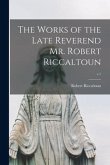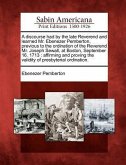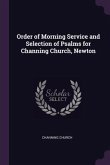George English's "A Letter To the Reverend Mr. Channing Relative to His Two Sermons On Infidelity" offers a compelling response to prevailing theological debates of its time. This meticulously prepared edition presents English's perspective on rationalism in relation to Christianity, directly engaging with Reverend Channing's sermons on infidelity. The book delves into core issues of faith and reason, offering insights into the complexities of religious belief and the challenges posed by rational thought. Readers interested in the historical intersection of religion and science, Christian theology, or comparative religion will find this work a valuable resource. English's arguments provide a window into the intellectual landscape of an era grappling with evolving understandings of faith and doubt, making it a relevant exploration of enduring theological questions. Explore the arguments surrounding rationalism, Christianity, and the nature of belief in this important historical document. This work has been selected by scholars as being culturally important, and is part of the knowledge base of civilization as we know it. This work is in the public domain in the United States of America, and possibly other nations. Within the United States, you may freely copy and distribute this work, as no entity (individual or corporate) has a copyright on the body of the work. Scholars believe, and we concur, that this work is important enough to be preserved, reproduced, and made generally available to the public. We appreciate your support of the preservation process, and thank you for being an important part of keeping this knowledge alive and relevant.
Bitte wählen Sie Ihr Anliegen aus.
Rechnungen
Retourenschein anfordern
Bestellstatus
Storno

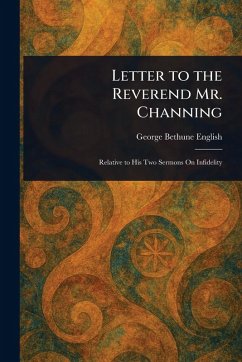

![Hypocrisy Detected; in a Letter to the Late Firm of Haldane, Ewing, and Co. [microform]: With a Preface, Containing the Narrative of Mr. James Reid, a Hypocrisy Detected; in a Letter to the Late Firm of Haldane, Ewing, and Co. [microform]: With a Preface, Containing the Narrative of Mr. James Reid, a](https://bilder.buecher.de/produkte/65/65492/65492221m.jpg)
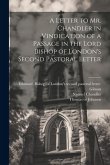
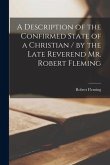
![A Sermon for Saint Patrick's Day [microform]: Preached by the Reverend Mr. Macmahon, on the 17th March, 1827, at Saint Jacques's Church, Montreal A Sermon for Saint Patrick's Day [microform]: Preached by the Reverend Mr. Macmahon, on the 17th March, 1827, at Saint Jacques's Church, Montreal](https://bilder.buecher.de/produkte/65/65540/65540631m.jpg)
